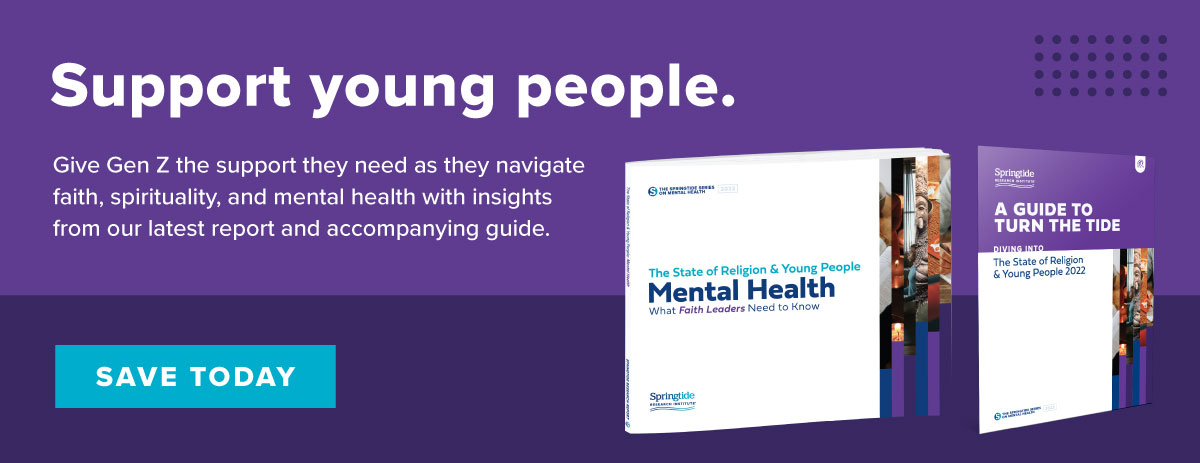
Is Your Organization Mental-Health Friendly? A Checklist
By Springtide
Is Your Organization Mental-Health Friendly? A Checklist2022-11-082022-11-03https://springtideresearch.org/wp-content/uploads/2023/12/springtide-logo-2022-r-blue-buffer.pngSpringtide Research Institutehttps://springtideresearch.org/wp-content/uploads/2022/11/110822-header-01-scaled.jpg200px200px
Whether it’s a place of worship, learning, business or community service, organizations set out to positively impact people both outside and within their walls. Yet, sometimes organizations can undertake norms or institute practices that end up harming more than helping. With the mental health crisis at an all time high (especially for Gen Z), it’s even more important to ensure your faith community, school, business or nonprofit has the structure in place to support young people’s mental health. Below, find a series of statements to help you evaluate if your organization has the elements that meet the mental health needs of Gen Z.
- Young people are greeted by name by leaders, staff and/or volunteers.
- Young people have the opportunity to develop meaningful relationships with trusted adults.
- Young people asked to serve, share their talents and insights, and/or lead.
- Young people are free to ask questions and share opinions.
- Young people are offered choices in how they contribute to or participate in the community.
- Young people can engage in arts-related activities inside and outside the community.
- Young people understand the rules/norms/expectations and have the tools and resources to meet them in a reasonable manner.
- Young people have opportunities to build skills, explore different paths or learn new information.
- Young people are taught how to treat others, and the adults enact those practices.
- Young people feel they can show up as their full selves.
- Adults welcome and encourage the presence of young people in organizational activities.
- Adults say hello and/or acknowledge young people.
- Adults make it a point to get to know the young people in the community.
- Adults help provide guidance and/or resources on how to navigate hardships, trauma or major illness.
- Adults are available to have meaningful conversations and offer guidance.
- Adults contact young people when they are repeatedly absent or missing from activities.
- Adults make an effort to connect with young people when there’s a marked change in their behavior or demeanor.
- Adults live with integrity, and lead with transparency and care.
- Adults celebrate young people’s identities, rather than tolerate them.
Recommended Posts




